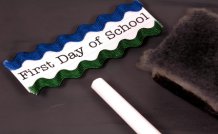Online Class: Third Grade Curriculum

no certificate
with CEU Certificate*
-
10Lessons
-
12Exams &
Assignments -
441Students
have taken this course -
4Hours
average time -
0.4CEUs
Course Description
Empowering Third Graders: Unleashing Potential through Modern Curriculum & Pedagogy
Third grade marks a significant milestone in a child's academic journey. It's a transformative phase when young learners evolve from mere absorbers of information to articulate communicators. With refined vocabularies and burgeoning writing techniques, the canvas of communication unfurls before them, presenting a universe of possibilities. However, to truly tap into this potential, a robust and dynamic curriculum is essential. This course offers exactly that.
Course Highlights:
-
Building Master Communicators: Dive deep into the nuanced development of third graders' communication skills. Understand the importance of fostering a space where they can confidently convey their thoughts and feelings.
-
Leveraging Active Pedagogy: Modern research consistently cautions against passive lecturing. This course emphasizes the need to pivot towards an "active" or "interactive" teaching style. Not only does this approach encourage students to internalize information more deeply, but it also cultivates a culture of exploration and expression.
-
Holistic Academic Exploration: Covering eight essential academic arenas – reading, writing, math, science, social studies, art, music, and drama – this course presents innovative techniques and activities tailored for each subject. These resources are designed to keep learners engaged, curious, and ever-evolving.
-
Incorporating Common Core Standards: An overview of the national common core standards for each academic discipline ensures that your teaching is aligned with broader educational objectives, optimizing student outcomes.
-
Insightful Teaching Theories: Dive into contemporary curriculum and pedagogic theories that have been reshaping the educational landscape. Equip yourself with the knowledge to adapt and evolve in this ever-changing domain.
-
Customizable Framework: While this course offers a comprehensive overview of third grade curriculum essentials, it's designed with adaptability in mind. Recognizing that each state and school district possesses unique standards and mandates, our content is versatile, allowing you to tailor it to local requirements.
Why Choose This Course?
Third grade isn't just another academic year; it's the bedrock upon which future academic success is built. This course not only acknowledges this but provides educators with the tools, insights, and strategies to ensure their students don't just navigate this pivotal year but truly thrive. Through a blend of modern pedagogic principles, hands-on activities, and a holistic approach to subject areas, educators are empowered to create a vibrant, responsive, and inspiring learning environment.
Join us on this transformative journey. Whether you're a seasoned educator or someone stepping into the realm of third-grade teaching, this course promises insights that will reshape your classroom, making it a hub of curiosity, creativity, and cognitive growth. Let's nurture the next generation of thinkers, dreamers, and doers.
Course Motivation
Academic Needs
The first and second grades are often viewed collectively. In fact, some schools combine the classrooms of the early primary years. Third graders begin to master basic academic skills and become stronger in their cognitive abilities.
The fledgling skills of reading and writing combine to allow children to begin to use their powerful new skills to learn at a deeper level. As Education.com describes it, kids begin to move from "learning to read" to "reading to learn," and from "learning to write" to "writing to communicate."
At this stage, the thinking required to convert letters into sounds has become mostly automatic, so students can focus on the meaning of the text that they are reading. Children become readers that are more fluent. Their vocabulary expands and they can read longer and more complex material.
In third grade, students can write at a more complex level. They can spell many words correctly now, and they understand the stages of the writing process. Their use of language will improve, including mastering basic grammar and style rules. They will also work to edit and revise their own writing.
Because the basics of reading and writing are now more comfortable, the discipline of social studies can become a more prominent topic. Teachers can capitalize on children's natural interest about people, places, and times by using stories to teach about different cultures, past and present. At this level, the teaching in part focuses on imparting knowledge, but it also seeks to lay a foundation for more sophisticated learning later.
Third grade is an important year for mathematics concepts. At this stage, the curriculum moves from simple computation to skills that are more complex. In science, students are encouraged to channel their innate curiosity into asking questions and seeking answers. Students should be given chances to collect and analyze data from their own mini-experiments.
While students will be taught more sophisticated critical thinking skills, Education.com stresses that at this age, children have accumulated enough experiences that they can make more use of common sense. Educators can praise kids for using common sense to solve problems and expect them to be able to work out some problems by themselves.
- Completely Online
- Self-Paced
- Printable Lessons
- Full HD Video

- 6 Months to Complete
- 24/7 Availability
- Start Anytime
- PC & Mac Compatible
- Android & iOS Friendly
- Accredited CEUs

Course Lessons
Lesson 1. Third Grade Overview
 Lesson 1 Video
Lesson 1 Video Lesson discussions: Third Grade Curriculum; Reasons for Taking this Course
Lesson discussions: Third Grade Curriculum; Reasons for Taking this Course Complete Assignment: Course Introduction and Goals
Complete Assignment: Course Introduction and Goals Assessment: Lesson 1 Exam
Assessment: Lesson 1 Exam
Lesson 2. Creating Curriculum
 Lesson 2 Video
Lesson 2 Video Assessment: Lesson 2 Exam
Assessment: Lesson 2 Exam
Lesson 3. Reading and English Usage
 Lesson 3 Video
Lesson 3 Video Assessment: Lesson 3 Exam
Assessment: Lesson 3 Exam
Lesson 4. Writing
 Lesson 4 Video
Lesson 4 Video Assessment: Lesson 4 Exam
Assessment: Lesson 4 Exam
Lesson 5. Mathematics
 Lesson 5 Video
Lesson 5 Video Lesson discussions: Third Grade Subjects
Lesson discussions: Third Grade Subjects Assessment: Lesson 5 Exam
Assessment: Lesson 5 Exam
Lesson 6. Science
 Lesson 6 Video
Lesson 6 Video Assessment: Lesson 6 Exam
Assessment: Lesson 6 Exam
Lesson 7. Social Studies
 Lesson 7 Video
Lesson 7 Video Assessment: Lesson 7 Exam
Assessment: Lesson 7 Exam
Lesson 8. Art
 Lesson 8 Video
Lesson 8 Video Assessment: Lesson 8 Exam
Assessment: Lesson 8 Exam
Lesson 9. Music and Movement
 Lesson 9 Video
Lesson 9 Video Assessment: Lesson 9 Exam
Assessment: Lesson 9 Exam
Lesson 10. Dramatic Arts
 Lesson 10 Video
Lesson 10 Video Lesson discussions: Subjects; Program Evaluation Follow-up Survey (End of Course); Course Comments
Lesson discussions: Subjects; Program Evaluation Follow-up Survey (End of Course); Course Comments Assessment: Lesson 10 Exam
Assessment: Lesson 10 Exam Assessment: The Final Exam
Assessment: The Final Exam
Learning Outcomes
- Describe what the third grade curriculum requirements are.
- Describe the processes for creating curriculum.
- Identify and develop curriculum needs for reading and English usage, writing, mathematics, science, and social studies.
- Identify and develop curriculum needs for art, music, movement, and the dramatic arts.
- Demonstrate mastery of lesson content at levels of 70% or higher.
Additional Course Information

- Document Your Lifelong Learning Achievements
- Earn an Official Certificate Documenting Course Hours and CEUs
- Verify Your Certificate with a Unique Serial Number Online
- View and Share Your Certificate Online or Download/Print as PDF
- Display Your Certificate on Your Resume and Promote Your Achievements Using Social Media

Choose Your Subscription Plan
No Certificate / No CEUs
This course only
| Includes certificate | X |
| Includes CEUs | X |
| Self-paced |

|
| Instructor support |

|
| Time to complete | 6 months |
| No. of courses | 1 course |
Certificate & CEUs
This course only
| Includes certificate |

|
| Includes CEUs |

|
| Self-paced |

|
| Instructor support |

|
| Time to complete | 6 months |
| No. of courses | 1 course |
Certificates & CEUs
Includes all 600+ courses
| Includes certificate |

|
| Includes CEUs |

|
| Self-paced |

|
| Instructor support |

|
| Time to complete | 12 Months |
| No. of courses | 600+ |
Certificates & CEUs
Includes all 600+ courses
| Includes certificate |

|
| Includes CEUs |

|
| Self-paced |

|
| Instructor support |

|
| Time to complete | 24 Months |
| No. of courses | 600+ |
Related Courses
-
 6 hours
0.6 CEUs
Bullying in Elementary School
+ More Info
6 hours
0.6 CEUs
Bullying in Elementary School
+ More Info
-
 5 hours
0.5 CEUs
Building Self-Esteem in Children
+ More Info
5 hours
0.5 CEUs
Building Self-Esteem in Children
+ More Info
-
 3 hours
0.3 CEUs
Understanding Childhood Obesity
+ More Info
3 hours
0.3 CEUs
Understanding Childhood Obesity
+ More Info
-
 12 hours
1.2 CEUs
Child Abuse Recognition, Investigation, and Protection
+ More Info
12 hours
1.2 CEUs
Child Abuse Recognition, Investigation, and Protection
+ More Info
-
 8 hours
0.8 CEUs
Stages of Childhood Development
+ More Info
8 hours
0.8 CEUs
Stages of Childhood Development
+ More Info
-
 5 hours
0.5 CEUs
Child Safety for Parents
+ More Info
5 hours
0.5 CEUs
Child Safety for Parents
+ More Info
-
 3 hours
0.3 CEUs
First Grade Curriculum
+ More Info
3 hours
0.3 CEUs
First Grade Curriculum
+ More Info
-
 7 hours
0.7 CEUs
Introduction to Child Psychology
+ More Info
7 hours
0.7 CEUs
Introduction to Child Psychology
+ More Info
-
 9 hours
0.9 CEUs
Reading Comprehension 101
+ More Info
9 hours
0.9 CEUs
Reading Comprehension 101
+ More Info
-
 4 hours
0.4 CEUs
Second Grade Curriculum
+ More Info
4 hours
0.4 CEUs
Second Grade Curriculum
+ More Info








